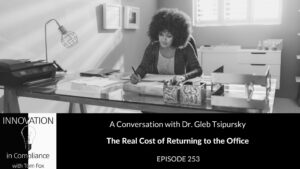Each person who becomes a naturalized citizen of these United States is required to swear the following Oath:
“I hereby declare, on oath, that I absolutely and entirely renounce and abjure all allegiance and fidelity to any foreign prince, potentate, state, or sovereignty, of whom or which I have heretofore been a subject or citizen; that I will support and defend the Constitution and laws of the United States of America against all enemies, foreign and domestic; that I will bear true faith and allegiance to the same; that I will bear arms on behalf of the United States when required by the law; that I will perform noncombatant service in the Armed Forces of the United States when required by the law; that I will perform work of national importance under civilian direction when required by the law; and that I take this obligation freely, without any mental reservation or purpose of evasion; so help me God.”
The principles embodied in the Oath are codified in Section 337(a) in the Immigration and Nationality Act (INA), which provides that all applicants shall take an oath that incorporates the substance of the following:
- Support the Constitution;
- Renounce and abjure absolutely and entirely all allegiance and fidelity to any foreign prince, potentate, state, or sovereignty of whom or which the applicant was before a subject or citizen;
- Support and defend the Constitution and laws of the United States against all enemies, foreign and domestic;
- Bear true faith and allegiance to the same; and
- A. Bear arms on behalf of the United States when required by the law; or
B. Perform noncombatant service in the Armed Forces of the United States when required by the law; or
C. Perform work of national importance under civilian direction when required by the law.
The language of the current Oath is found in the Code of Federal Regulations Section 337.1 and is closely based upon the statutory elements in Section 337(a) of the INA.
I know all this because my wife recently became a US citizen this month and I could not be more proud of her for this accomplishment. Reading the Oath she swore did give me some pause to think about what does it really mean to be a citizen of these United States.
First and foremost, I have never been required to swear this Oath, as a natural born citizen of the United States. Now I wish I had done so because the Oath makes clear that as citizens, we all have obligations to our country. Right about now the language “Support and defend the Constitution and laws of the United States against all enemies, foreign and domestic” is as important as it has ever been, given the events of January 6, 2021 and the involvement of the highest levels of former administration.
But I also reflected on Clause Five quite a bit as well. Although I am far past the age where I might reasonably be expected to be drafted, if there was a total war and the existence of our country was in such grave danger, I could be called on to bears arms in support of the US. If I am too old or infirm to bear arms in support of this country. I still be could called on to “Perform noncombatant service in the Armed Forces of the United States when required by the law”. Finally, I can be called upon to “Perform work of national importance under civilian direction when required by the law.” There have been few true national emergencies in my lifetime. Perhaps the Cuban Missile Crisis and the Covid-19 pandemic are the only true national emergencies during my lifetime. I was too young to understand much about the Cuban Missile Crisis other than my father was called to active duty over a weekend.
But the language does not specify you can be called only in a military emergency. It can be to perform work of national importance. Certainly, following the government’s directions during the pandemic was such an instance of performing work under the direction of civilian authority.
John Lee Dumas, in his concluding remarks when I asked him to reflect on 9/11 and the intervening 20 years in the award-winning podcast series, Looking Back on 9/11 said that America is the Land of the Free because we are the Home of the Brave. Re-reading this Oath drove home to me that we are all obligated to be and act as citizens of these United States. Even if you are like me and never been required to take this Oath or like my wife, who had to swear this Oath to become a US citizen, and everyone in between.






